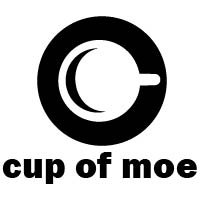We may earn money or products from the companies mentioned in this post.
“Game of Thrones” will end in utter heartbreak. Everyone can feel it, like the bitter nip of imminent winter. Eager fans have even devised a death-bracket, a deliciously macabre way of guessing who will live and who will die. But from the very beginning, the biggest question fueling debate has been, “Who will sit on the Iron Throne?” Many could ultimately claim that coveted seat, but it is my strong belief that none will. Because there will be no one left.

Little commentary is needed to rule out Comedy as a possible descriptor. As for the dramatic structures, most are defined by the personal growth protagonists experience as a result of their trials. “Game of Thrones” characters certainly change, but never in objectively positive ways. The longer they survive, the more prone to they become to violence and vengeance.
We are left, then, with Overcoming the Monster and Tragedy, both of which seem relatively plausible. But with each failed encounter, the odds of overcoming the White Walkers become increasingly grim, to say nothing of rivaling political factions. And despite an overabundance of tragic moments, the central plot is not uniquely driven by the personal shortcomings of otherwise good characters, a hallmark of classic Tragedy.
This series is unique not only in its resistance to traditional structures, but also in its calculated subversion of them. And for that reason, I believe “Game of Thrones” may be the first widespread example of another type of fiction entirely: the anti-story. Just as anti-jokes rely on undermining expectations for comedic effect, anti-stories specifically defy storytelling tropes as a means of challenging conventions. And what trope is more ubiquitous in high fantasy than a simple “Happily Ever After” ending?
We have seen countless characters rise and fall in their bid for the Iron Throne. And the most common theme throughout each gruesome death is how little bearing any character’s individual morality held over their eventual demise. And perhaps that is the ultimate point. Despite all the political gamesmanship and petty personal squabbles, one constant remains true – Valar morghulis. All men die.
“When you play the game of thrones,” Cersei tells us, “you win or you die.” But there is no final victory for mortals. For all our sound and fury, there will always be forces of nature fully beyond our control. Kings always fall; dynasties never last. Unwavering and uncompromising, the slow march of death – personified by the White Walkers – carries on in spite of prophesy and power plays and individual objection. “Happily Never After” is the only proper ending to an anti-story, and one which “Game of Thrones” fully deserves.
This post may contain affiliate links. We are a participant in affiliate programs such as the Amazon Services LLC Associates Program, an affiliate advertising program designed to provide a means for us to earn fees by linking to Amazon.com and affiliated sites. However, all products are thoroughly tested and reviews are honest and unbiased.

